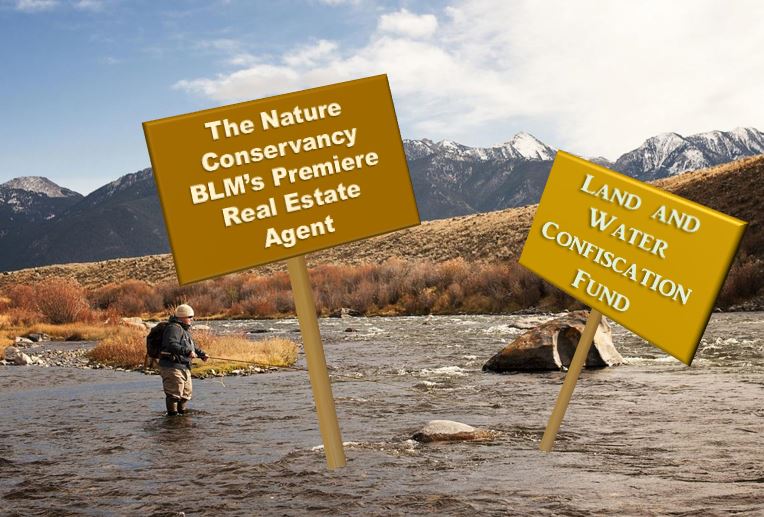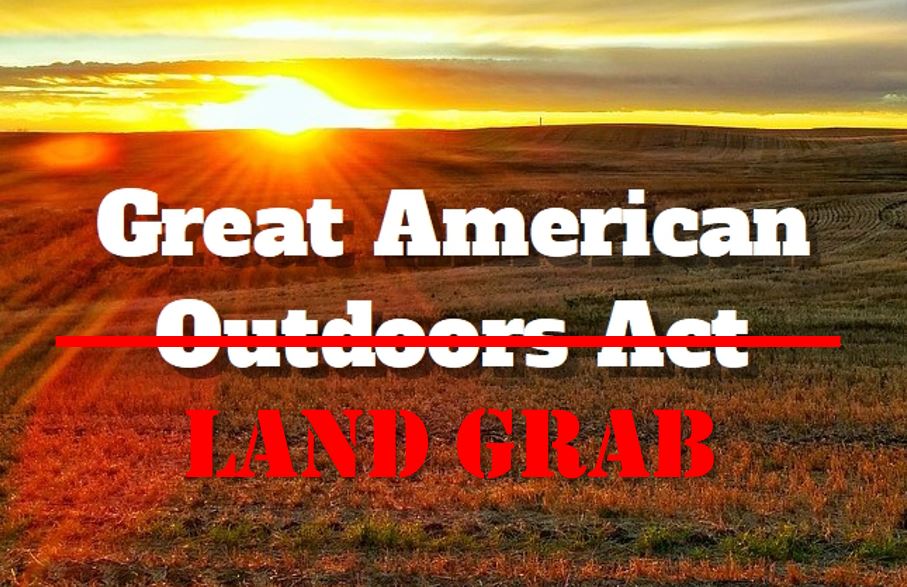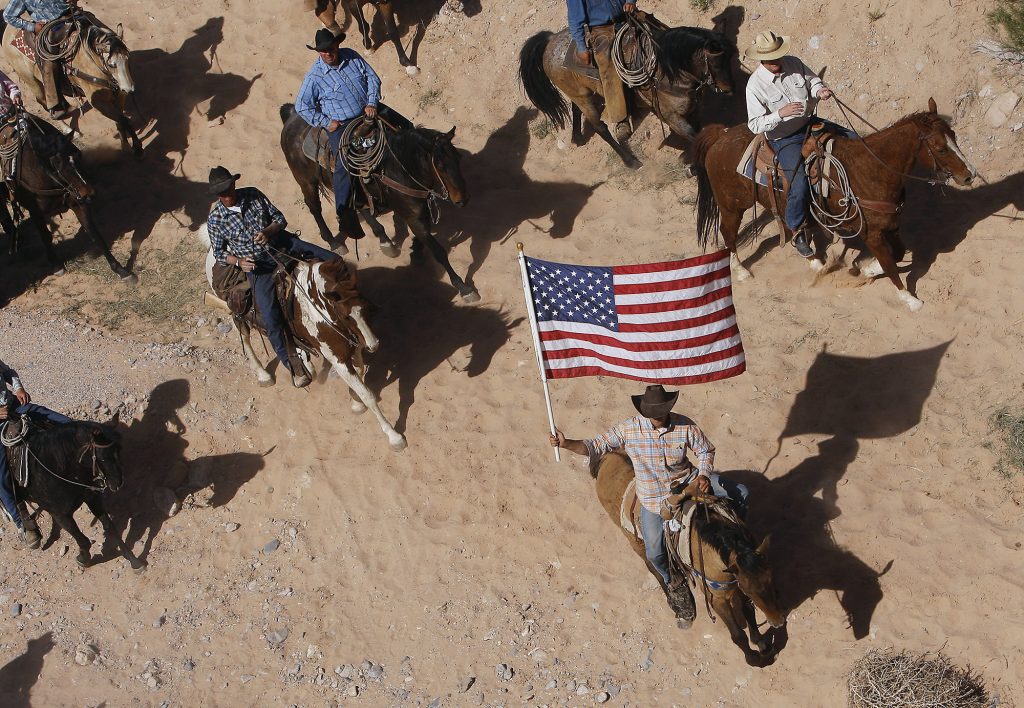As long as there is a LWCF, BLM will have the financial wherewithal to gobbling up rural land, in the West and elsewhere. The program’s future has been in limbo since September when Congress failed to reauthorize it. An attempt in December to revive the program as part of a public lands package was stymied with the breakdown of budget negotiations that led to the partial government shutdown.
Bonner Cohen, Ph. D.
Nature Conservancy deal shows threat of conservation fund
By flipping 300 acres of private land in Montana to the Interior Department’s Bureau of Land Management (BLM), the Nature Conservancy (TNC) has solidified its reputation as “the feds’ real estate agent.” In this case, Arlington, Va.-based TNC teamed up with the head of a high-flying California tech company to seal the deal.
The $1.025 million transaction also sheds light on the threat to traditional rural Western communities posed by one of Capitol Hill’s most insidious slush funds, the Land and Water Conservation Fund (LWCF). Created in 1964, the LWCF was originally supposed to help states develop planning for recreation areas and related facilities. But over the decades the LWCF has morphed into a piggy-bank in which deep-pocketed environmental groups collaborate with wealthy, and often, out-of-state landowners flip land to the federal government.
TNC and a West Coast Software CEO
Located on the east bank of the Madison River, about 23 south of Ennis, the property was jointly owned by TNC and Roger Lang, CEO of San Francisco-based Predicta, Inc., an artificial-intelligence (AI) company. Lang negotiated the deal with the BLM, according to the Billings Gazette (Dec. 21). Funding for the transaction was provided by the LWCF and the Madison River Foundation, a Montana-based environmental group.
The property abuts some private land but is also contiguous with public land (BLM and Montana state lands). TNC is pleased that the BLM’s latest acquisition will add to the federal estate.
“This connection to public land multiplies the conservation value of the acquisition by tenfold,” said Jim Berkey, TNC’s director for the High Divide Headwaters Program, in a press release. “This transfer helps us realize a greater conservation vision for this stretch of the cherished Madison River.”
BLM is equally enthusiastic about its latest acquisition. “This is another great example of how working with our partners – Roger Lang, TNC, and the Madison River Foundation – can bring about a lasting benefit to the public,” BLM official Cornie Hudson said in a statement.
The Fate of the LWCF
As long as there is a LWCF, BLM will have the financial wherewithal to gobbling up rural land, in the West and elsewhere. The program’s future has been in limbo since September when Congress failed to reauthorize it. An attempt in December to revive the program as part of a public lands package was stymied with the breakdown of budget negotiations that led to the partial government shutdown. The LWCF’s supporters want to make the program permanent so it won’t be subject to annual budget and appropriations battles. And if they can’t slip it into a deal to reopen the government, they will surely try again later in 2019.
The LWCF had a near-death experience in late 2018 when a group of GOP lawmakers, concerned about the nation’s ballooning debt, included elimination of the program altogether in a legislative package to cut $14 billion from the FY 2019 budget. But the $14 billion cut was defeated thanks in large part to the defection of Sen. Richard Burr, R-North Carolina, an ardent LWCF supporter.
The Feds Can’t Manage the Land They Manage
If Utah Republican Sen. Mike Lee has his way, however, the land-grabbing LWCF will be no more.
Free Range Report
Thank you for reading our latest report, but before you go…
Our loyalty is to the truth and to YOU, our readers!
We respect your reading experience, and have refrained from putting up a paywall and obnoxious advertisements, which means that we get by on small donations from people like you. We’re not asking for much, but any amount that you can give goes a long way to securing a better future for the people who make America great.
[paypal_donation_button]
For as little as $1 you can support Free Range Report, and it takes only a moment.



